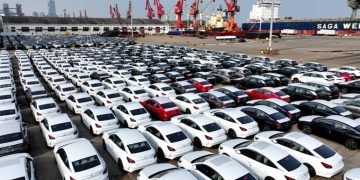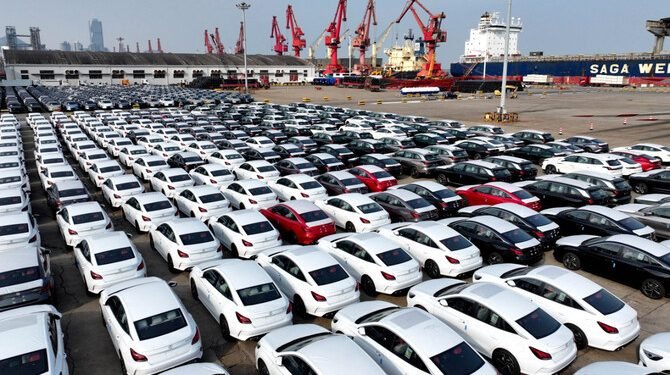Article for The Logistic News
The ongoing trade tensions between the U.S. and China have escalated once again, with China retaliating against U.S. tariffs on automotive imports. This latest move is set to have far-reaching consequences for global automotive supply chains, impacting manufacturers, logistics providers, and consumers worldwide.
What’s Behind China’s Retaliatory Tariffs?
The conflict reignited after the U.S. government imposed higher tariffs on Chinese-manufactured vehicles and auto parts, citing the need to protect domestic manufacturers and address trade imbalances. In response, China has announced countermeasures, increasing tariffs on U.S. auto imports and parts, further straining already fragile global supply chains.
The trade war, which has affected industries ranging from semiconductors to energy, is now creating uncertainty in the automotive logistics sector, forcing companies to rethink their sourcing, production, and distribution strategies.
Key Impacts on Automotive Supply Chains
✅ Increased Costs for Automakers
Higher tariffs mean higher costs for car manufacturers, especially those reliant on cross-border supply chains between the U.S. and China. Brands that import parts from China will face increased production costs, which could lead to higher vehicle prices for consumers.
✅ Shift Toward Nearshoring & Regional Manufacturing
With rising tariff-related costs, automakers are accelerating nearshoring efforts, bringing production closer to end markets. Mexico, Canada, and Southeast Asia are emerging as alternative manufacturing hubs, helping companies bypass costly trade barriers.
✅ Supply Chain Disruptions & Longer Lead Times
Retaliatory tariffs can cause logistics bottlenecks, regulatory delays, and unpredictable inventory shortages. Companies that depend on just-in-time manufacturing models will be most affected, as they rely on seamless global transportation networks.
✅ Diversification of Suppliers & Trade Routes
To mitigate risks, automakers and suppliers are diversifying their sourcing strategies. Some companies are shifting focus toward European and South Korean suppliers, reducing dependence on U.S.-China trade routes.
✅ Potential Impact on Electric Vehicle (EV) Production
The EV market is particularly vulnerable, as many EV batteries and critical components are sourced from China. Tariffs could increase EV production costs, slowing down the global transition to sustainable mobility.
How Automotive Logistics Providers Are Adapting
📌 Rerouting supply chains to avoid tariff-heavy regions
📌 Exploring Free Trade Agreements (FTAs) to reduce import/export costs
📌 Investing in digital supply chain visibility to track disruptions in real-time
📌 Partnering with regional logistics hubs to maintain efficiency
Conclusion
As the U.S.-China trade conflict intensifies, automakers and logistics providers must remain agile and adaptive. Nearshoring, supply chain diversification, and digital transformation will be critical in mitigating risks and maintaining global competitiveness. The evolving landscape of tariffs and trade policies will continue shaping the future of automotive logistics and production strategies worldwide.
#AutoLogistics #SupplyChain #ChinaTariffs #TradeWar #Nearshoring #AutomotiveManufacturing #EVMarket #GlobalTrade #TheLogisticNews






















